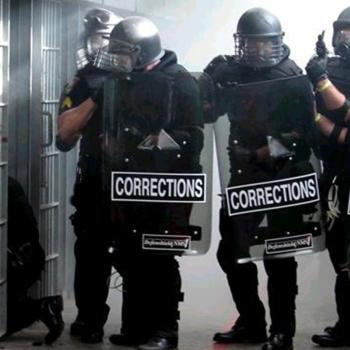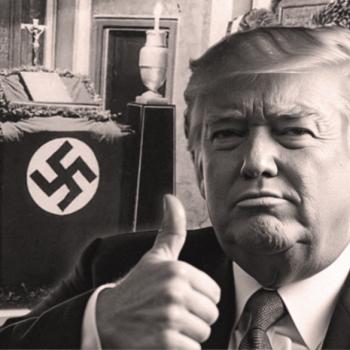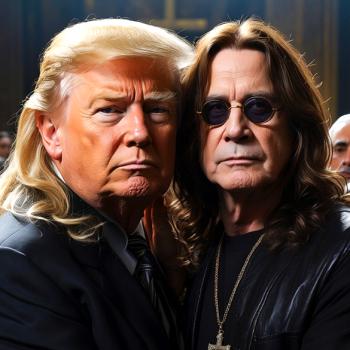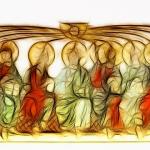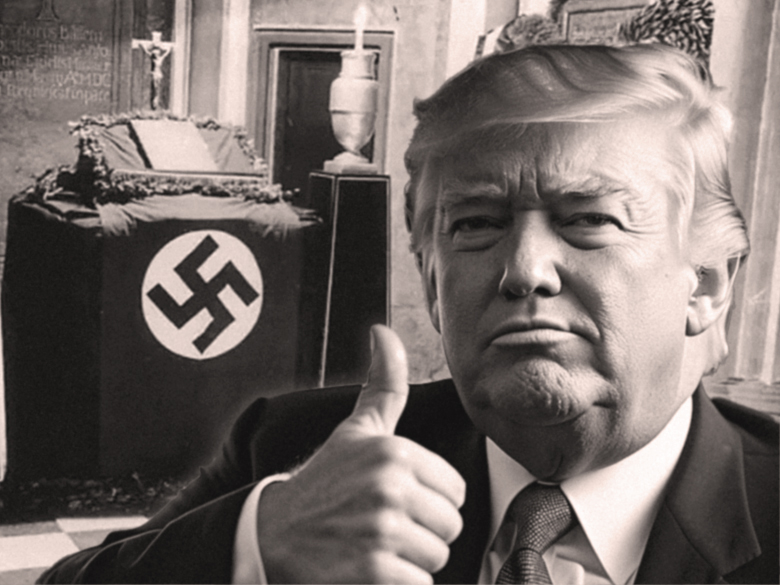
In a world where the lines between spiritual salvation and political domination blur, we find ourselves staring down the barrel of a movement that’s more medieval than modern. Christian Nationalism is stepping out from the shadows, flexing its muscles on the American stage, and it’s not here to play second fiddle in the orchestra of democracy. Recent investigations have pulled back the curtain on this not-so-secret society, revealing an agenda that’s less about pews and prayers and more about power plays. Let’s dive deep into this divine dilemma, where faith intersects with authoritarian tendencies, eerily mirroring the early maneuvers of 20th-century totalitarian regimes.
What is Christian Nationalism?
Imagine a world where the cross and the flag are stitched together, not just symbolically but as a mandate for governance. Christian Nationalism is this blend, a controversial cocktail where faith dictates the law and biblical scriptures are seen as the foundation of national policy. It’s a vision that seeks to redefine American identity, aligning it more closely with specific religious beliefs than with the broad spectrum of cultural and spiritual diversity that truly defines the nation. This ideology isn’t just about expressing faith publicly; it’s about legislating it, embedding it into the very core of how the country operates, much like the strategic blueprints of past authoritarian rulers.
Project 2025: A Blueprint for Theocracy?
Project 2025 might sound like a sci-fi sequel, but it’s actually the title of a rather ambitious, if not alarming, blueprint for a future where the right-wing and Christian fundamentalist ideologies hold the reins of federal agencies. Backed by approximately 100 right-wing organizations, this strategic plan isn’t just about influencing policy; it’s about remolding the American government’s structure to align with a specific set of religious beliefs. For instance, proponents of Project 2025 aim to dismantle the Department of Education, advocating for a system where biblical creationism can take precedence over scientific evidence in school curriculums. It’s democracy meets Deuteronomy, echoing the chilling clarity of past autocratic scripts.
The Manifesto Unveiled
At the heart of this crusade sits a manifesto that could double as a script for a historical drama—except it’s aiming for a real-world premiere. This document outlines a government system steeped in Scripture, where “civil magistrates” are not just public servants but divine enforcers. “Christian Nationalism is a set of governing principles rooted in Scripture’s teaching,” the manifesto boldly claims, setting the stage for a world where laws are not debated in Congress but delivered from the pulpit, making “Thou shalt not” less an ethical guideline and more a legal mandate, reminiscent of the darkest chapters of state-controlled dogma.
Key Players in the Christian Nationalist Movement
The Christian Nationalism movement is not a solo act but a choir of voices, each singing a similar tune of merging doctrinal dogma with the mechanics of governance. Central figures in this narrative include Russ Vought and William Wolfe, influential leaders advocating for a government that mirrors their strict interpretation of Christianity. These key players wield significant influence, aiming to shape not just policy but the very soul of the nation, much like the architects behind historical authoritarian-style leadership masked in religious righteousness.
Trump’s Shadow Over Christian Nationalism
No discussion of Christian Nationalism’s rise to prominence would be complete without mentioning Donald Trump, their Orange Messiah. Trump’s presidency marked a significant turning point, where Christian Nationalist ideologies moved from the fringes to the forefront of American politics. His administration’s appointments and policy decisions often mirrored the movement’s goals, from judicial appointments that shifted the ideological balance of the courts to executive actions that prioritized religious freedoms at the expense of broader civil rights. Trump’s explicit endorsements and alignment with key Christian Nationalist leaders not only legitimized but energized this base, providing them with unprecedented access and influence over national policy. This relationship highlights a pivotal alliance that continues to shape the political landscape, underscoring the critical role that personality politics plays in the endurance and expansion of Christian Nationalism.
Implications for Democracy and Diversity
The rise of Christian Nationalism poses significant challenges to the pluralistic fabric of American society. By advocating for policies and laws grounded in a singular religious perspective, this movement threatens the delicate balance of rights and freedoms that define a democracy. It marginalizes non-Christian communities and undermines the secular principles foundational to the United States. The movement’s trajectory towards a homogenized national identity disregards the rich tapestry of cultures and beliefs that contribute to the nation’s strength and character, heralding a decline in democratic values seen in various authoritarian regimes throughout history.
A Call to Arms or a Call to Prayer?
Amid the fervent rallying cries of Christian Nationalism, a stark question emerges: Are we witnessing a spiritual awakening or a call to literal arms? Statements suggesting a readiness for armed conflicts, such as William Wolfe’s hint at Christians taking up arms, illustrate the extreme and potentially violent rhetoric associated with the movement. This blending of religious zeal with combative language raises alarms about the potential for violence in pursuit of theological aims, echoing the grim chapters of religious wars and state oppression.
Looking Ahead: The Crossroads of Faith and Governance
As the shadow of Christian Nationalism looms larger, America stands at a critical crossroads between faith and governance. This movement’s drive towards a theocratic vision for the country challenges the foundational principles of democracy and religious freedom. The upcoming choices made by voters, activists, and leaders across the faith spectrum will determine the direction of this journey. Will the nation cling to its diverse, pluralistic roots, or veer towards a future where religious doctrine dictates public policy? Now, more than ever, it is essential for citizens to engage, educate themselves, and actively participate in shaping the future, remembering the lessons of the past when nations faced periods of intense turmoil and oppression.
For more Snarky Faith check out the podcast:






